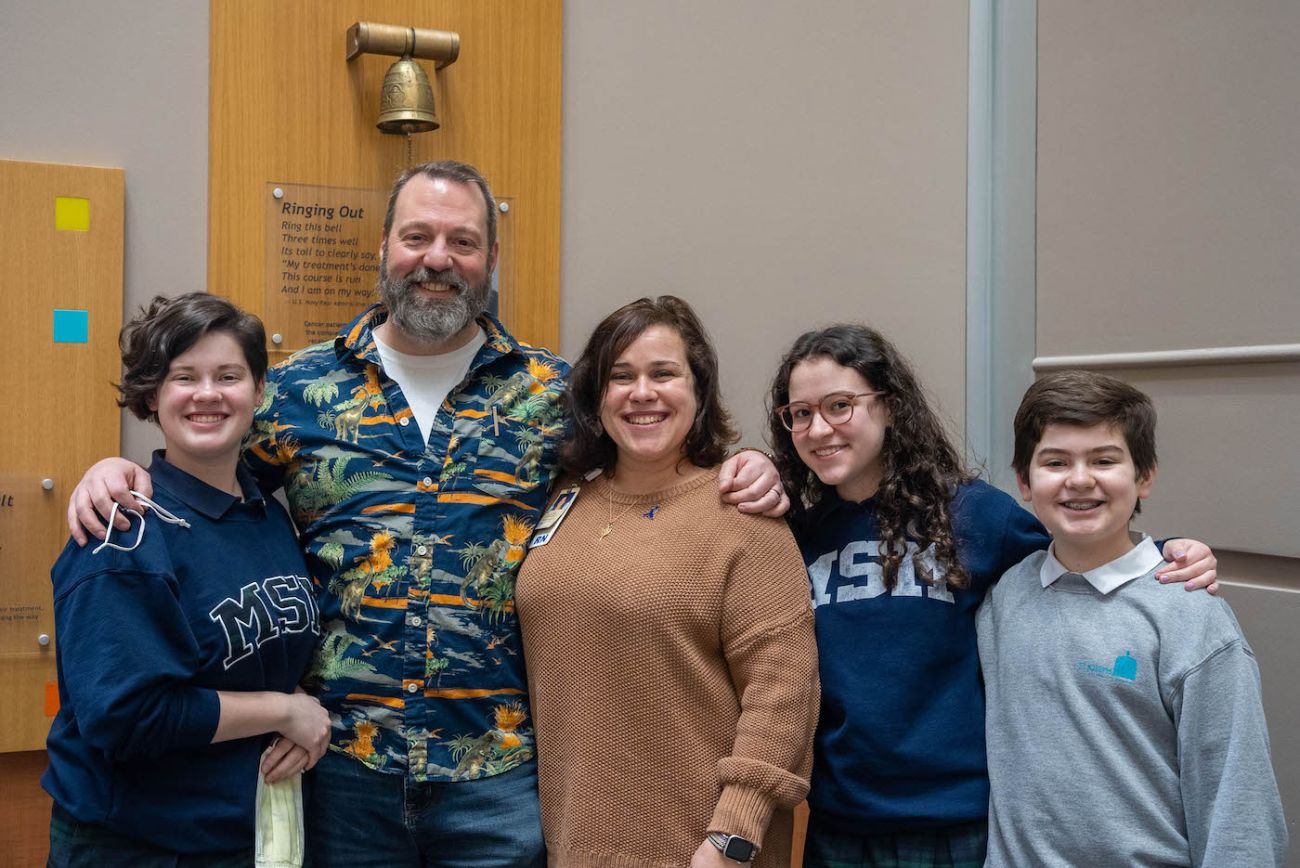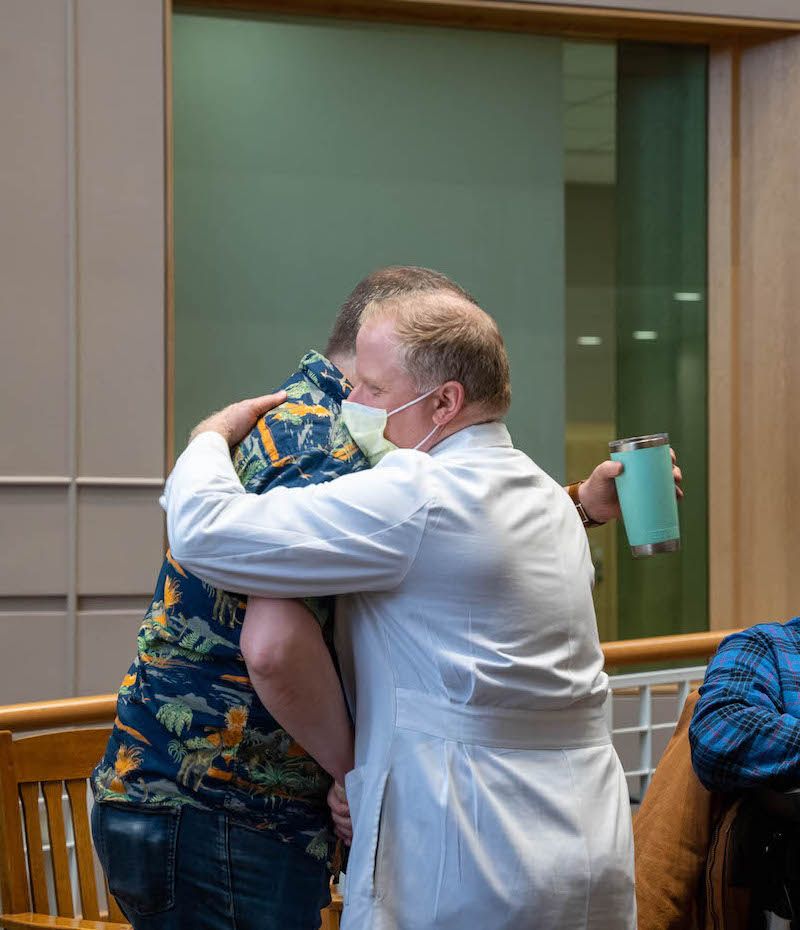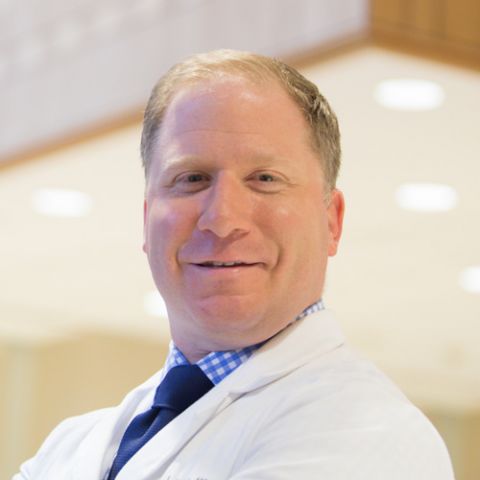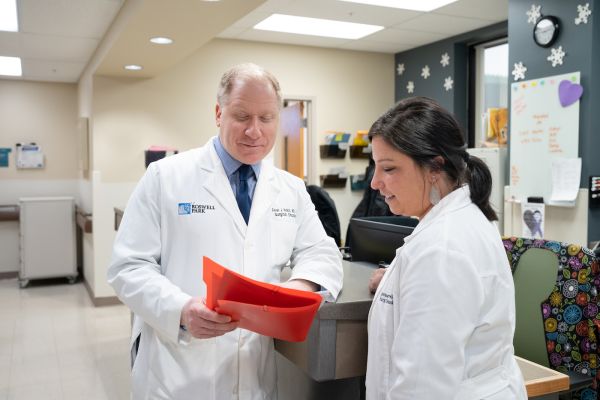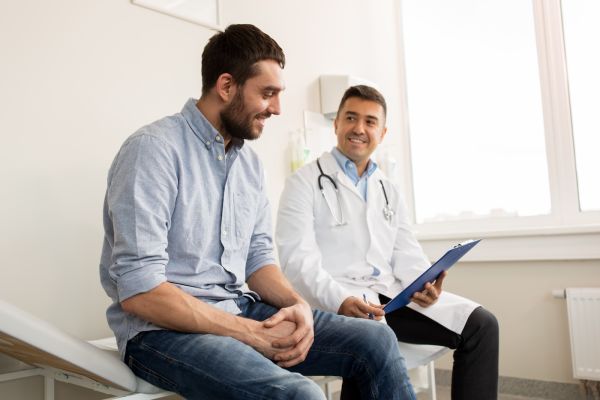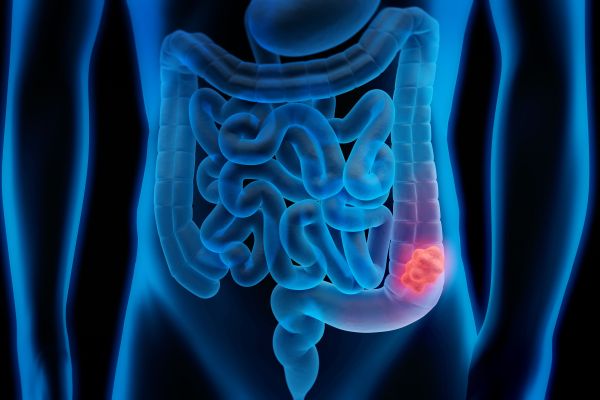Mike Garvey was 44 when his Uncle Dan asked if he’d had a colonoscopy. After all, Mike’s grandfather was diagnosed with colorectal cancer when he was in his 50s.
“I said ‘No, I’m far too young and vibrant for that to happen,’” Mike recalls with a laugh. But the question stayed with him, despite thinking his grandfather had been much older than he was when he was diagnosed.
Mike’s primary care doctor, considering the family history and his age, agreed that it might help ease Mike’s mind to have a colonoscopy.
“Mike is not a person who is running to the doctor for every little thing,” says Lisa Garvey, BSN, RN, MS, a community liaison nurse at Roswell Park Comprehensive Cancer Center and Mike’s wife. “There was something telling Mike something was wrong. He just had the feeling something was wrong in his body.”
He called and made the appointment, but the morning of his colonoscopy, Lisa needed to “peel him off the couch” to get Mike there. “This was very unusual for him,” she says.
The results surprised everyone: Mike had stage three colorectal cancer, despite not having any symptoms.
Things moved quickly from that point, with Lisa registering Mike on Roswell Park’s “Become a Patient” page to begin the process of getting him into the patient system. She got to work making lists of what to do and who to call in order to begin treatment.
“I started with radiation first and chemotherapy by pill. We did that for a month, then chemo by infusion for four months,” Mike recounts. After that course of treatment, established by Deepak Vadehra, DO, a medical oncologist at Roswell Park, they met with Steve Nurkin, MD, MS, FACS, a surgical oncologist and Chief of Colorectal Surgery at Roswell Park. “Dr. Nurkin did an examination, some bloodwork and had an MRI done. He declared we had a complete clinical response and that surgery wasn’t something we were going to pursue.”
Mike will continue to be monitored by his care team for several years to make sure his cancer does not come back, but “at this moment, there’s nothing to remove,” Lisa says. “Obviously it was a shock at first because he didn’t have any symptoms. You never expect this to happen in your own backyard.”
Dr. Nurkin credits Mike's knowledge of his family history and Lisa's care and dedication to Mike's results.
"It was a moment of pure joy to witness the disappearance of Mike's tumor after treatment. It was an emotional experience for everyone involved," Dr. Nurkin says. "While he'll need intensive surveillance to ensure it doesn't return, this kind of response is associated with an excellent prognosis, and most patients can be cured in this setting. Mike's story is a testament to the power of knowing your family history, early detection, effective treatment, and the resilience of the human spirit."
On March 1, Mike, along with his father-in-law Frank Battaglia, who just completed treatment for bladder cancer at Roswell Park, rang the Victory Bell. It was a moment they shared with their extended family with hugs and excited smiles, as they celebrated their good news.
Knowledge is power — and can save a life
The general guidelines for colorectal cancer screening suggest people of average risk of developing the disease begin getting regular colonoscopies, or completing at-home DNA-based stool-testing kits, at age 45. People with a history of colorectal cancer are encouraged to begin screening 10 years prior to the age at which their relative was diagnosed – which was exactly the time that Mike had that fateful conversation with his uncle.
“When I had lunch with my uncle, he kind of lit a fire under me that this is in the family and, yes, my grandfather was an old man when it happened, but not much older than I was when I was diagnosed,” Mike says. “If we had waited another year for a colonoscopy, we would’ve had a much different conversation about my treatment. There was an angel or something on my shoulder and it made a difference.”
Lisa’s familiarity with Roswell Park helped Mike feel confident, from the start, that his diagnosis was something they could handle. “Through all of this, I know how lucky I am for a lot of reasons. Roswell Park was able to connect me with a wonderful network of people to take care of me,” he says.
Dr. Nurkin agrees that Lisa's support, coupled with Mike's knowledge of his family history with cancer, undoubtedly played a big role in Mike's treatment. "It's crucial not to underestimate the power of knowing your family history - it could save your life," Dr. Nurkin says.
Mike knows his wife, and the team at Roswell Park, we're rooting for him and supporting him the whole time.
“Lisa, my hero in many ways, held my hand throughout, certainly in the beginning," he says. "But the entire Roswell Park team, everybody from the doctors I talked to, to the nursing staff, to the receptionists, down to the person who sells coffee in the lobby, they made it easy for me to do this. It’s not an easy thing to do, but they made it as easy as possible.”
Colon cancer screening at Roswell Park
Understand your screening needs and complete the cancer screening and prevention questionnaire to manage your colorectal cancer risk.
Take the personal assessmentEditor’s Note: Cancer patient outcomes and experiences may vary, even for those with the same type of cancer. An individual patient’s story should not be used as a prediction of how another patient will respond to treatment. Roswell Park is transparent about the survival rates of our patients as compared to national standards, and provides this information, when available, within the cancer type sections of this website.
